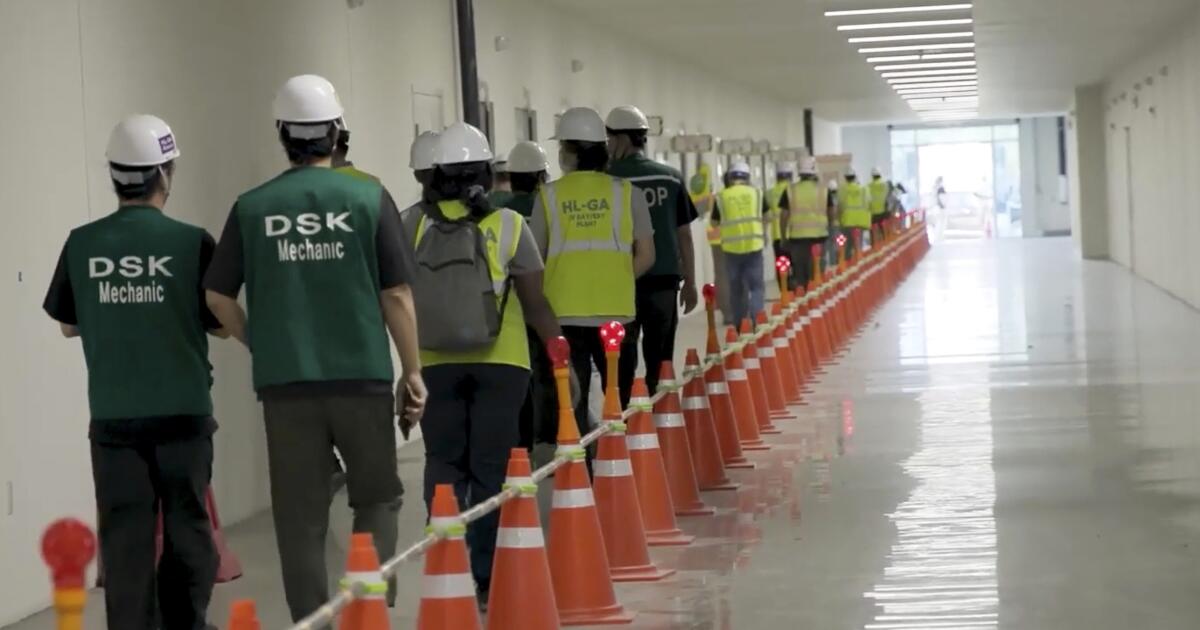Why did Toni Atkins’ campaign for California governor fizzle?
Among the small army of prospects who’ve eyed the California governorship, none seemed more qualified than Toni Atkins.
After serving on the San Diego City Council, she moved on to Sacramento, where Atkins led both the Assembly and state Senate, one of just three people in history — and the first in 147 years — to head both houses of California’s Legislature.
She negotiated eight state budgets with two governors and, among other achievements, passed major legislation on abortion rights, help for low-income families and a $7.5-billion water bond.
You can disagree with her politics but, clearly, Atkins is someone who knows her way around the Capitol.
She married that expertise with the kind of hardscrabble, up-by-her-bootstraps backstory that a calculating political consultant might have spun from whole cloth, had it not been so.
Atkins grew up in rural Appalachia in a rented home with an outdoor privy. Her first pair of glasses was a gift from the local Lions Club. She didn’t visit a dentist until she was 24. Her family was too poor.
Yet for all of that, Atkins’ gubernatorial campaign didn’t last even to 2026, when voters will elect a successor to the termed-out Gavin Newsom. She quit the race in September, more than eight months before the primary.
She has no regrets.
“It was a hard decision,” the Democrat said. “But I’m a pragmatic person.”
She couldn’t and wouldn’t keep asking “supporters and people to contribute more and more if the outcome was not going to be what we hoped,” Atkins said. “I needed sort of a moonshot to do it, and I didn’t see that.”
She spoke recently via Zoom from the den of her home in San Diego, where Atkins had just returned after spending several weeks back in Virginia, tending to a dying friend and mentor, one of her former college professors.
“I was a first-generation college kid … a hillbilly,” Atkins said. She felt as though she had no place in the world “and this professor, Steve Fisher, basically helped turn me around and not be a victim. Learn to organize. Learn to work with people on common goals. … He was one of the first people that really helped me to understand how to be part of something bigger than myself.”
Over the 22 months of her campaign — between the launch in January 2024 and its abandonment on Sept. 29 — Atkins traveled California from tip to toe, holding countless meetings and talking to innumerable voters. “It’s one thing to be the speaker or the [Senate leader],” she said. “People treat you differently when you’re a candidate. You’re appealing to them to support you, and it’s a different conversation.”
What she heard was a lot of practicality.
People lamenting the exorbitant cost of housing, energy and child care. Rural Californians worried about their dwindling access to healthcare. Parents and teachers concerned about wanton immigration raids and their effect on kids. “It wasn’t presented as a political thing,” Atkins said. “It was just fear for [their] neighbors.”
She heard plenty from business owners and, especially, put-upon residents of red California, who griped about Sacramento and its seeming disconnection from their lives and livelihoods. “I heard in Tehama County … folks saying, ‘Look, we care about the environment, but we can’t have electric school buses here. We don’t have any infrastructure.’ ”
Voters seemed to be of two — somewhat contradictory — minds about what they want in their next governor.
First off, “Someone that’s going to be focused on California, California problems and California issues,” Atkins said. “They want a governor that’s not going to be performative, but really focused on the issues that California needs help on.”
At the same, they see the damage that President Trump and his punitive policies have done to the state in a very short time, so “they also want to see a fighter.”
The challenge, Atkins suggested, is “convincing people … you’re absolutely going to fight for California values and, at the same, that you’re going to be focused on fixing the roads.”
Maybe California needs to elect a contortionist.
Given her considerable know-how and compelling background, why did Atkins’ campaign fizzle?
Here’s a clue: The word starts with “m” and ends with “y” and speaks to something pernicious about our political system.
“I hoped my experience and my collaborative nature and my ability to work across party lines when I needed to … would gain traction,” Atkins said. “But I just didn’t have the name recognition.”
Or, more pertinently, the huge pile of cash needed to build that name recognition and get elected to statewide office in California.
While Atkins wasn’t a bad fundraiser, she simply couldn’t raise the many tens of millions of dollars needed to run a viable gubernatorial race.
That could be seen as a referendum of sorts. If enough people wanted Atkins to be governor, she theoretically would have collected more cash. But who doubts that money has an unholy influence on our elections?
(Other than Kentucky Sen. Mitch McConnell, who spent much of his career fighting campaign finance reform, and members of the Supreme Court who green-lit today’s unlimited geyser of campaign spending.)
At age 63, Atkins is not certain what comes next.
“I’ve lost parents, but it’s been decades,” she said. “And to lose Steve” — her beloved ex-college professor — “I think I’m going to take the rest of the year to reflect. I’m definitely going to stay engaged … but I’m going to focus on family” at least until January.
Atkins remains optimistic about her adopted home state, notwithstanding her unsuccessful run for governor and the earful of criticisms she heard along the way,
“California is the place where people dream,” she said. “We still have the ability to do big things … We’re the fourth-largest economy. We’re a nation-state. We need to remember that.”
Without losing sight of the basics.

